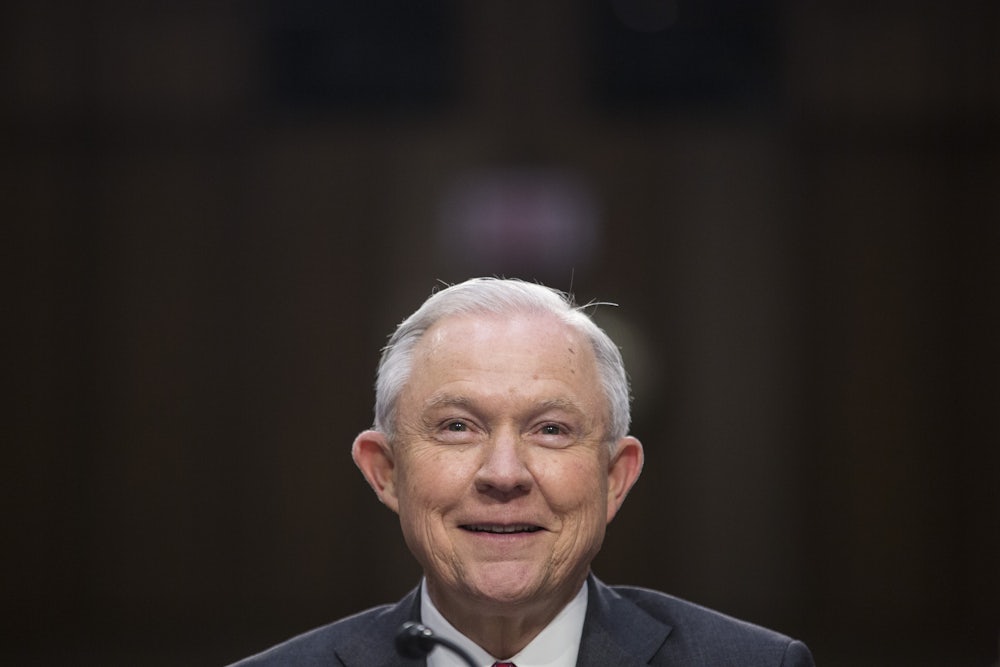Yesterday, the Justice Department issued an amicus brief in a case before New York’s Second Circuit Court of Appeals, originally brought by a Long Island skydiving instructor against his employer. The instructor, Donald Zarda, made a joke to a client that she didn’t have to worry about being strapped tightly to him during their dive, because he was gay. His employer, Altitude Express, fired him. Yesterday, Sessions’s Justice Department affirmed that, as far as they’re concerned, that’s perfectly legal under federal law.
The Altitude Express case is significant because Zarda sued both under New York state antidiscrimination law, which explicitly bans sexual orientation discrimination in the workplace, and under Title VII of the 1964 federal Civil Rights Act—which doesn’t mention sexual orientation, but does prohibit discrimination on the basis of sex. The argument that his lawyers made was that sexual orientation discrimination is sex discrimination: If a female skydiving instructer had jokingly mentioned that she only dated men, it’s hard to imagine that Altitude Express would have fired her for it. The idea is that sex discrimination occurs whenever an employee is punished for doing something that an employee of the opposite sex wouldn’t be punished for.
This is what Jeff Sessions objects to. Surprise, surprise, he is lobbying to have the anti-sex discrimination clause interpreted as narrowly as possible. But if the court sides with Zarda, it would mean a move toward expanding workplace protections for gay people nationwide. Currently, you can be fired for being gay in 28 states, and you can be fired for being trans in 30 states. Many of those states have protections for gay workers at the municipal level, in their biggest cities, but some do not. If sexual orientation is found to be covered by the Civil Rights Act, gay and lesbian workers will have protection in all 50 states.
Things may be heading in that direction. In April, the Seventh Circuit Court overwhelmingly ruled to honor that interpretation of the Civil Rights Act, declaring that sexual orientation discrimination is illegal under federal law. With other courts and the Justice Department opposed, the stage is set for a Supreme Court battle over LGBT protections in the workplace.
